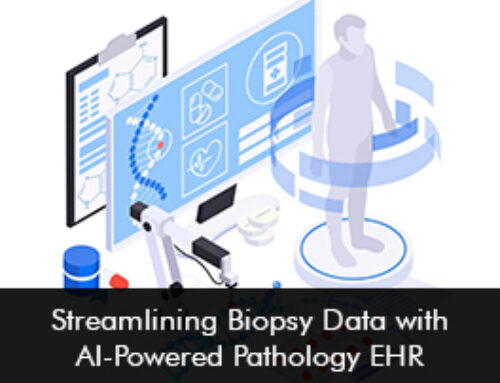Electronic Health Records (EHR) have revolutionized healthcare, and in oncology, their impact is transformative. Oncology, being highly complex and data-driven, benefits immensely from EHR systems that streamline patient data, treatment plans, and real-time clinical insights. Oncology EHRs support precision medicine by integrating vast patient data, including genetic profiles, into clinical workflows. This allows oncologists to develop highly targeted, personalized treatments. In today’s era of advancing medical technologies, the role of EHR in enhancing precision medicine is more critical than ever. With cancer rates rising, oncology EHR systems empower healthcare providers to improve patient outcomes through data-driven decision-making, streamlined processes, and collaboration across multidisciplinary teams.
How Oncology EHR Enhances Precision Medicine
Integration of Genomic and Molecular Data
- Oncology EHRs enable the seamless incorporation of patients’ genomic data, which is essential for identifying specific mutations driving cancer growth.
- By merging this molecular information with clinical data, oncologists can personalize therapies based on a patient’s unique genetic profile.
- Genomic data integration enables quicker decision-making for targeted therapies such as immunotherapy and chemotherapy.
Clinical Decision Support Systems (CDSS)
- Oncology EHRs incorporate advanced Clinical Decision Support Systems that assist oncologists in making accurate, evidence-based treatment decisions.
- CDSS analyzes patient data in real-time, offering insights into the most effective treatment regimens for individual cases.
- These systems help physicians avoid adverse drug interactions and select the best treatment based on real-time data.
Enhanced Data Sharing for Multidisciplinary Teams
- Oncology EHRs enable the sharing of patient information across teams of specialists, including surgeons, radiation oncologists, and geneticists.
- The availability of shared data enhances collaboration, ensuring that all team members are aligned on the treatment strategy.
- This real-time collaboration supports a coordinated and precise approach to cancer treatment.
Data-Driven Personalized Treatment Plans
- EHRs collect and store a patient’s entire medical history, including lab results, imaging, and previous treatments.
- This wealth of data helps oncologists tailor specific treatment plans, ensuring that therapies are customized to individual patients’ medical needs and history.
- Data-driven treatment plans help reduce trial-and-error approaches and improve patient outcomes.
Remote Monitoring and Patient Engagement
- Oncology EHRs offer features for remote monitoring, allowing oncologists to track patients’ progress even outside the clinic.
- These platforms include portals where patients can access their health data, engage with their treatment plans, and communicate with healthcare providers.
- Active patient engagement improves adherence to treatment plans and enhances overall health outcomes.
Top 5 Recommended Oncology EHR Software
Epic Systems
Widely used across large healthcare systems, Epic’s EHR integrates oncology-specific tools and supports precision medicine through genomics data.
Cerner Oncology
Known for its strong oncology workflow solutions, Cerner integrates clinical and genomic data to offer comprehensive treatment insights.
OncoEMR by Flatiron Health
Specifically designed for oncology practices, OncoEMR helps in personalized treatment planning, patient management, and clinical trial integration.
Allscripts Oncology
This platform supports clinical decision-making, personalized treatments, and enhanced care coordination across oncology teams.
McKesson iKnowMed
A highly intuitive EHR designed for oncology practices, iKnowMed offers specialized cancer care tools and integrates molecular data for precision medicine.
The integration of precision medicine into oncology is made possible through advanced EHR systems that gather, analyze, and streamline patient data. By incorporating genomic data, improving collaboration, and offering clinical decision support, oncology EHRs significantly enhance patient care. As the field of oncology continues to evolve, EHR systems will remain indispensable in providing the personalized, precise treatments necessary to combat cancer effectively. Platforms like Epic, Cerner, and OncoEMR lead the way in delivering cutting-edge technology to advance oncology practices across the U.S.
By using the right Oncology EHR, practices can optimize precision medicine, boost patient outcomes, and stay at the forefront of cancer care advancements.







